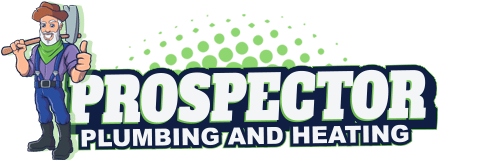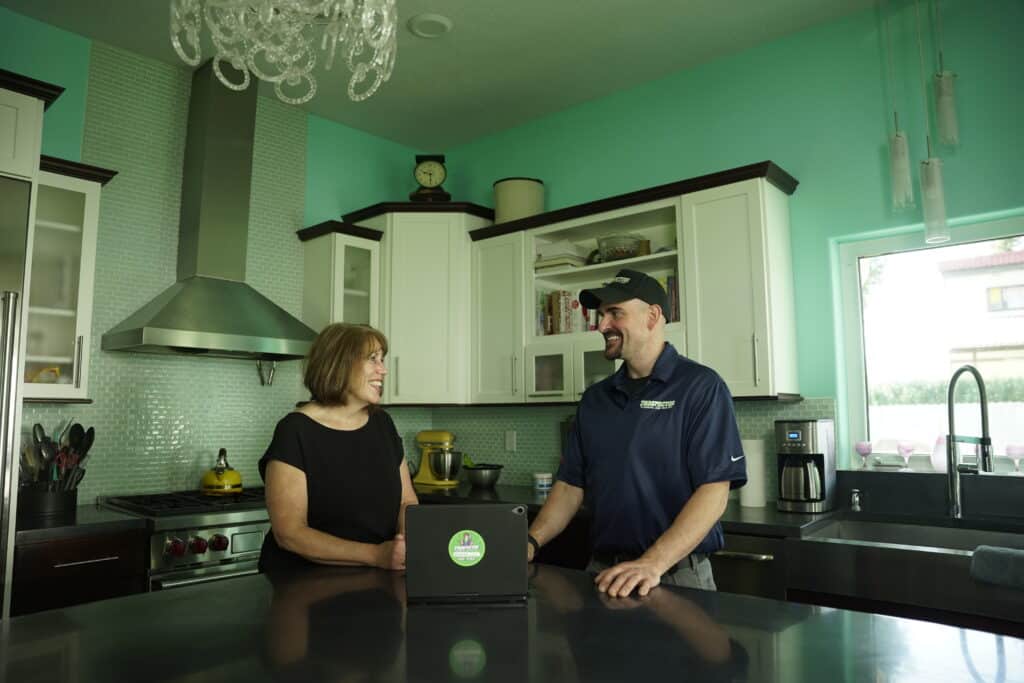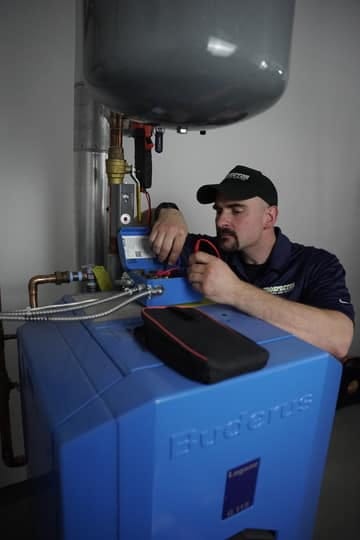Think of your home’s heating and cooling system as a “gold mine.” Much like the abundant gold veins hidden deep within Fairbanks’ rich earth, massive energy savings are tucked away, ready for you to unearth in your own home. But just as any seasoned prospector requires knowledge and tools to strike gold, homeowners need to know some tricks of the trade to maximize their system’s energy efficiency. Dig into this treasure trove of tips that will help transform your heating and cooling system into a powerhouse of savings and comfort. Who knew staking your claim on energy efficiency could be this lucrative? Don’t let these golden opportunities slip away!
The Importance of Energy Efficiency in Heating and Cooling Systems
Have you ever noticed how your energy bills in extreme climates like Fairbanks seem to skyrocket? A major reason for this problem is that heating and cooling systems consume a considerable amount of energy. Therefore, it’s imperative to maximize their efficiency. Learn the importance of energy efficiency in heating and cooling systems.
Ensure HVAC System Operates Efficiently
Energy efficiency allows HVAC (heating, ventilation, and air conditioning) systems to operate more efficiently while consuming less energy. This result is not only cost savings but also beneficial to the environment by lowering carbon footprints. Every homeowner should take measures to increase the efficiency of their heating and cooling systems. In this section, we’ll explore the significance of energy efficiency in heating and cooling systems.
For instance, an inefficient HVAC system may result in heat loss and unnecessary power consumption, increasing monthly utility bills and putting pressure on the environment. However, installing an energy-efficient unit means reduced waste because less fuel or electricity is required. As a result, households can expect their utility bills to decrease significantly.
Improve Comfort Level
With efficient HVAC equipment, homeowners will also observe several long-term benefits. One significant advantage is improved home comfort levels year-round due to stable temperature maintenance, consistent airflow, and low noise levels. Additionally, energy-star rated appliances have been shown to be much more durable than older models due to better materials and technology.
Some might argue that upgrading their old heating and cooling systems would be an expensive choice. While it’s true that new installations may come with upfront costs, these expenses are often recouped over time in the form of lower utility bills.
Think of your HVAC system as a car. An old car consumes more gas regardless of its mileage compared to newer ones with better fuel economy. The same applies to HVAC units; technological advancements have made them significantly more efficient than older models.
Comprehensive Climate Control
One of the most useful features of an HVAC system is its ability to provide optimal climate control. This advantage means that households can enjoy a pleasant home environment throughout the year, regardless of the weather outside.
The early summer months can be unbearably hot in Alaska, but with a properly functioning air conditioning unit, you won’t have to endure the discomfort. Similarly, during winter seasons characterized by sub-zero temperatures, homeowners should not have to shiver or wear multiple layers of clothing to keep warm. With adequate heating capabilities, it’s possible to maintain a constant temperature in your home without causing drafts or cold pockets.
By maintaining a comfortable and consistent indoor environment with adequate ventilation and filtration, homes will also experience fewer problems associated with poor air quality, like allergies and respiratory illnesses. Air conditioning units filter out contaminants like dust and mold spores, allowing for cleaner air circulation. In addition, energy-friendly units consume less fuel and electricity than older models while still ensuring effective climate control.
Some may argue that there are alternative methods to stay cool during the summer or warm during the winter besides using HVAC systems. For instance, using natural ventilation via open windows when the temperature outside is mild or relying on a fireplace when it’s cold. While these options are viable solutions for some Alaskans, it’s essential to note that HVAC systems offer more consistent and efficient solutions year-round.
- According to the U.S. Department of Energy, regular maintenance of heating and cooling systems can improve their energy efficiency by up to 30%.
- Studies indicate that upgrading to a programmable thermostat can save homeowners up to $180 per year on energy bills.
- The Department of Energy also reports that properly sealing and insulating air ducts can save up to 20% on heating and cooling costs.
Strategic Steps to Boost Energy Efficiency
When it comes to boosting the energy efficiency of your heating and cooling systems, there are several strategic steps you can take to achieve your goal. One of the most effective ways is by conducting an energy audit, which will help you identify areas where energy loss is occurring. This audit examines all aspects of your heating and cooling systems, including insulation, ductwork, windows, and doors, among others. By fixing these issues where they exist, homeowners can reduce their energy consumption and save money on their monthly heating and cooling bills.
For instance, if your air ducts have holes or leaks, hot air can escape in the winter or cold air in the summer. Consequently, you might end up spending more money powering the HVAC system than necessary. Sealing up these leaks would significantly boost your system’s efficiency because it would deliver more conditioned air throughout the house with less waste.
Selecting Energy-Efficient Equipment and Proper Installation
Selecting the right equipment for your home’s heating and cooling needs is critically important for boosting energy efficiency levels. When choosing a new HVAC system or replacing an old one, there are several factors to keep in mind to ensure you select the most efficient option for your needs. One such factor is the size of the equipment relative to the square footage of your home; larger equipment does not always translate into higher efficiency levels.
For instance, while it may be tempting to select a larger capacity heating or cooling system than that needed to save money in the long run, it typically results in higher energy bills and more wear and tear on the equipment. This is because oversized systems often cycle on and off frequently, drawing excessive amounts of power to start up each time.
However, some homeowners may wonder if replacing their current heating and cooling units entirely is worth the investment. While a complete replacement may seem costly initially, remember that you’ll be saving money in the long run through reduced energy consumption as well as enjoying greater comfort in your home.
The Role of Regular Maintenance in System Efficiency
Regular maintenance is a key component of ensuring the optimal performance and maximum energy efficiency of heating and cooling systems. Neglecting to get regular maintenance can cause components to wear out more quickly, leading to potential breakdowns and higher energy costs. By investing in regular maintenance for your system, you can enjoy lower energy costs, improved indoor air quality, and a longer lifespan for your equipment.
According to the U.S. Department of Energy, regular maintenance of heating and cooling systems can improve energy efficiency by up to 30%. By getting an annual tune-up from a professional HVAC technician, you can ensure that your system is operating at maximum efficiency. During these tune-ups, technicians will inspect your system, clean components, make any necessary repairs or adjustments, and test the system’s overall performance.
Regular maintenance of your HVAC system is like preventive healthcare for your body. You might feel fine initially without getting regular check-ups with a doctor or dentist, but eventually, small issues can grow into big problems if left unchecked. The same is true for your heating and cooling systems; small issues can lead to bigger problems down the line if not taken care of promptly through routine maintenance.
Cutting-edge Technologies in Energy Conservation for Heating and Cooling Systems
In recent years, the heating and cooling industry has seen significant advancements in technology that promote energy conservation. These cutting-edge technologies promise a more efficient future for homeowners looking to maximize their energy savings while still enjoying a comfortable indoor climate. Let’s take a closer look at some of these innovative technologies.
One popular technology gaining traction is the use of smart home automation systems. These systems integrate with your heating and cooling systems and automatically adjust the temperature based on your preferences and daily habits. They also allow you to monitor your energy usage and make adjustments accordingly. For instance, if you forgot to turn off the air conditioner when leaving for work, you can do so remotely using your smartphone.
Another emerging technology is radiant floor heating. Instead of blowing hot air through ducts and vents, radiant heating transfers heat directly from warm water circulating through tubes to the floor. This results in evenly distributed warmth that radiates upward into the living space, eliminating the cold spots typical of conventional heating systems, which can decrease energy efficiency.
However, this type of system comes with a higher initial cost compared to traditional air-based heating systems. Still, it has a much longer lifespan due to the rarity of malfunctions or breakdowns because its operation relies on water instead of mechanical parts like most traditional HVAC units.
Think of it like this: Swapping out your old heaters with new ones is like trading in an outdated street vehicle for an electric one or hybrid that consumes less gas and emits fewer pollutants. Although the upfront cost may appear pricey, you’ll have nearly no maintenance after installation, enjoy an enhanced experience, reduce pollution on our planet, and save money on annual costs associated with owning cars such as petrol per week, oil change necessary per month (the same principle applies for floor-it HVAC units), and extend the lifespan of your heating and cooling unit.
Additionally, geothermal heating and cooling systems also show promise for reducing energy consumption. These systems use the heat stored beneath the surface of the earth to warm your home in the winter and cool it in the summer. This is done through a series of pipes that circulate a liquid solution to transfer heat. While this technology does have a higher initial investment, it has a significantly lower long-term cost due to its superior energy efficiency.
As technologies continue to develop rapidly, homeowners can look forward to even more options for improving their heating and cooling efficiency and lowering their energy costs. Be sure to keep apprised of these advances as time goes by!
Final Words
Optimizing energy efficiency in your heating and cooling systems is beneficial not only to you but also to the environment. By following the tips outlined in this blog, you can significantly decrease energy consumption while living comfortably at home in Fairbanks, Alaska.
Don’t put off taking control of your energy usage and start saving now; visit prospectorplumbing.com today for expert guidance and assistance to create a more sustainable future while optimizing comfort and savings in your heating and cooling systems. Take the first step now and schedule a consultation appointment with Prospector Plumbing and Heating!


